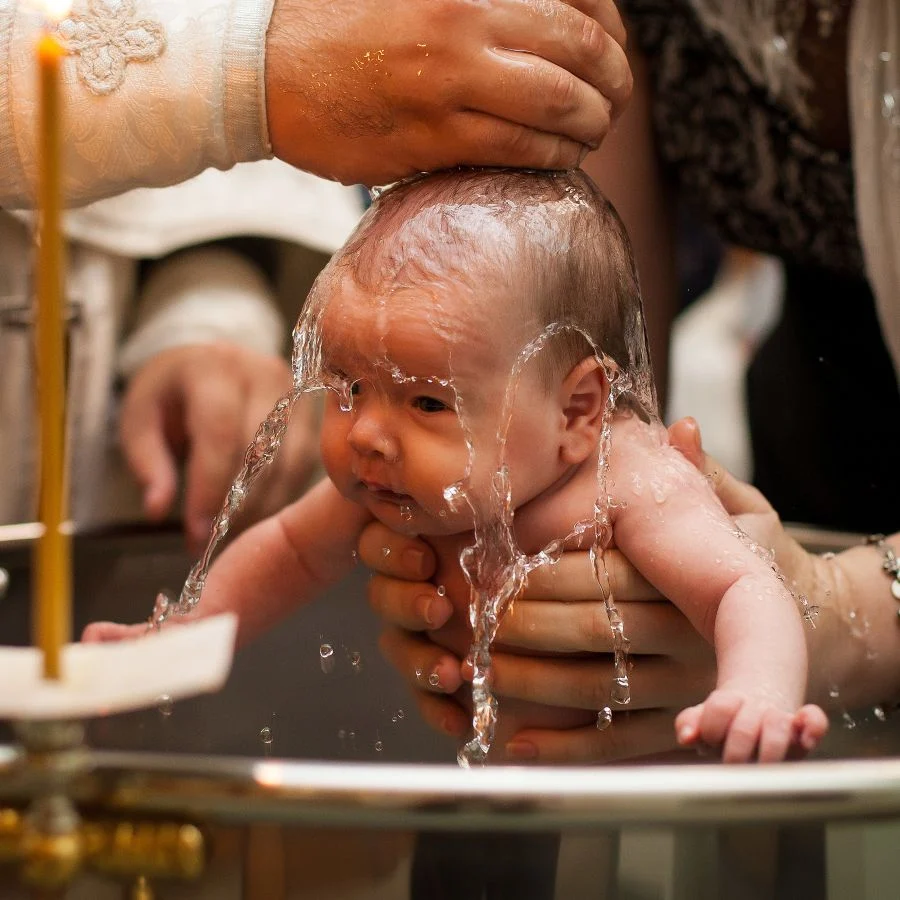Baptism is a profound and sacred rite of passage that holds deep significance in various religious traditions. If you’re pondering the question, “Where can I get baptized?” you’re embarking on a spiritual journey that connects you to centuries of tradition. This comprehensive guide will illuminate the process of getting baptized and provide insights into the various aspects surrounding this cherished ritual.

Finding Baptism Locations
Are you ready to take the transformative step of baptism? Finding the right location for your baptism is crucial to ensuring a meaningful experience. Let’s explore the avenues available for your baptism journey:
- Local Churches and Places of Worship: Traditional and widely chosen, local churches offer baptismal services for both newcomers and existing members. Seek out churches in your area that align with your faith and beliefs.
- Religious Centers and Parishes Near You: Beyond churches, religious centers, and parishes often extend invitations to those seeking baptism. These spiritual hubs may offer a sense of community and support as you embark on this profound commitment.
- Community Centers Offering Baptism Services: Some community centers collaborate with religious organizations to provide baptism services. These locations can be particularly beneficial if you’re seeking a more inclusive and diverse environment.
When choosing your baptism location, consider factors such as the denomination, the size of the congregation, and the overall atmosphere. Your journey toward finding the perfect baptism venue is a step toward a lifelong connection with your faith.
Choosing the Right Baptism Location
Selecting a baptism location is a deeply personal decision, as it sets the tone for your spiritual journey. Here are key factors to consider when making this pivotal choice:
- Spiritual Alignment: Ensure that the venue’s teachings and beliefs resonate with your spiritual journey. Whether you’re drawn to the rituals of a church or the inclusive environment of a community center, alignment is essential.
- Community Support: The sense of community can greatly enrich your baptism experience. Consider whether you want to be part of a larger congregation or a more intimate group.
- Symbolic Significance: Delve into the symbolic significance of the location. Churches, for instance, are steeped in tradition and history, while outdoor settings offer a connection with nature’s elements.
Your baptism is a celebration of faith and personal growth. By selecting a location that aligns with your beliefs and values, you’re embarking on a journey that speaks to your heart and soul.
Preparing for Baptism
As you approach the day of your baptism, it’s important to recognize the significance of this step in your spiritual journey. Baptism isn’t just a ritual; it’s a symbolic representation of your commitment to your faith. Here’s how you can prepare mentally, emotionally, and spiritually for your upcoming baptism:
- Understanding the Role of Baptism: Take time to reflect on the spiritual meaning of baptism within your faith. Understanding the symbolism and significance of the ritual can deepen your connection to the process.
- Embracing Mental and Emotional Readiness: Baptism represents a profound commitment to your faith journey. Take moments for introspection and self-discovery as you mentally and emotionally prepare for the experience.
- Seeking Guidance: Reach out to spiritual leaders, mentors, or individuals who have undergone baptism. Their insights and experiences can provide valuable guidance as you navigate your journey.
Baptism Requirements and Prerequisites
As you embark on your baptism journey, it’s essential to understand the requirements and prerequisites set forth by your chosen faith community. Different traditions may have varying guidelines, so it’s crucial to be informed. Here are key considerations:
- Age Restrictions and Consent for Minors: Many faiths have specific age requirements for baptism. Some churches baptize infants, while others wait until individuals are older and can make a conscious choice. For minors, parental consent is often necessary.
- Preparatory Classes and Workshops: Some faith communities require individuals to attend preparatory classes or workshops before undergoing baptism. These sessions provide foundational knowledge about the significance of the ritual and its role in your spiritual journey.
By familiarizing yourself with the specific requirements and prerequisites, you’re ensuring that you’re fully prepared for the baptism process within your chosen faith tradition.
Types of Baptism Services
Baptism ceremonies come in various forms, each carrying its unique elements and symbolism. Depending on your faith and personal preferences, you can choose from a range of baptism services:
- Traditional Church Baptism Ceremonies: These ceremonies are often held within the sacred walls of a church. The ritual is led by clergy or spiritual leaders and involves symbolic gestures, blessings, and prayers.
- Outdoor and Immersion Baptisms: If you’re drawn to the symbolism of cleansing and rebirth, outdoor or immersion baptisms might resonate with you. These ceremonies take place in natural bodies of water, symbolizing a connection to the elements and the renewal of faith.
- Private and Group Baptism Options: Some faith communities offer both private and group baptism options. Private ceremonies provide a more intimate setting, allowing you to focus on your journey. Group baptisms offer a sense of community as multiple individuals come together to celebrate their faith.
Exploring the different types of baptism services allows you to align the ceremony with your spiritual preferences and values. Each option holds its unique charm and significance.
What to Expect on Baptism Day
As your baptism day approaches, it’s natural to have questions about what to expect during the ceremony. While specific practices may vary based on your faith tradition, here’s a general overview of what typically occurs:
- Step-by-Step Walkthrough of the Baptism Ceremony: The ceremony begins with an explanation of the significance of baptism and its role in your spiritual journey. This is often followed by a series of symbolic gestures, prayers, and blessings.
- Role of Family and Friends in the Celebration: Family and friends often play a pivotal role in the baptism ceremony. They may be present as witnesses, offering their support and love as you take this important step.
The exact sequence of events may differ based on your chosen faith and the style of the ceremony. It’s advisable to reach out to your chosen faith community or religious leader to obtain specific details about your upcoming baptism.
Baptism Attire and Symbolism
The attire worn during a baptism holds both practical and symbolic significance. Typically, white garments are chosen to symbolize purity, new beginnings, and the washing away of sins. Here’s a closer look at baptism attire and its meaning:
- Choosing Appropriate Attire for the Occasion: Selecting the right attire is an important aspect of preparing for your baptism. Many individuals opt for white clothing, which symbolizes the purity of the soul and the renewal of faith. However, attire can vary based on cultural norms and personal preferences.
- Symbolic Meaning of White Garments: White garments worn during baptism are a visual representation of the spiritual cleansing that occurs during the ritual. Just as water cleanses the body, the baptism ceremony cleanses the soul and marks a new chapter in your spiritual journey.
Baptism attire allows you to physically embody the transformative experience you’re about to undergo. It’s a tangible reminder of the symbolic purification that takes place during the ceremony.
Baptism Rituals and Symbolic Gestures
The baptism ceremony is replete with rituals and symbolic gestures that hold deep spiritual meaning. These actions are designed to connect you with your faith and mark the transition into your new spiritual identity:
- Significance of Holy Water in Baptism: Central to the baptism ceremony is the use of holy water. The act of pouring or immersing in water symbolizes purification, rebirth, and the washing away of sins. The holy water serves as a conduit for divine blessings and grace.
- Blessings, Prayers, and Anointing: Throughout the ceremony, blessings, prayers, and anointing may take place. These rituals invoke spiritual guidance and protection as you embark on your faith journey. Anointing with sacred oils may also represent the sealing of your commitment to your faith.
Participating in these rituals allows you to engage with your faith on a profound level. Each action carries deep symbolism and is intended to create a meaningful connection between you and your spiritual beliefs.
Post-Baptism Guidance and Support
Your journey doesn’t end with the baptism ceremony—it’s just the beginning. After your baptism, it’s important to continue nurturing your faith and integrating its teachings into your daily life. Here’s how you can find guidance and support post-baptism:
- Nurturing Your Faith After Baptism: Reflect on the transformative experience of baptism and how it aligns with your personal beliefs. Continue attending worship services, participating in faith-based activities, and engaging with scripture to deepen your understanding.
- Joining Faith-Based Communities and Groups: Connecting with a faith-based community can provide you with a support network of like-minded individuals. Engaging with these communities can help you sustain the sense of belonging and connection that baptism represents.
Your baptism marks a new chapter in your spiritual journey, and the path ahead is rich with opportunities for growth and exploration. By actively seeking guidance and support, you’ll find yourself on a fulfilling and purposeful trajectory.
Embracing Your Newly Baptized Identity
As you stand at the threshold of this significant milestone, it’s important to embrace the transformation that baptism brings:
- Continued Spiritual Growth: Baptism isn’t a destination; it’s the start of a lifelong journey. Continue to nourish your spiritual growth by immersing yourself in scripture, prayer, and acts of kindness.
- Living Your Faith: Let the teachings of your faith guide your actions and decisions. Uphold the principles of love, compassion, and humility in your daily life.
- Building Connections: Engage with your faith community to build meaningful connections. Share your experiences, learn from others, and contribute to the collective spiritual journey.
In Conclusion
Your decision to get baptized is a testament to your commitment to your faith and personal growth. By exploring the various aspects of baptism—finding the right location, understanding requirements, experiencing rituals, and seeking post-baptism guidance—you’re embarking on a profound spiritual odyssey. Remember, this journey is uniquely yours, and its significance will continue to resonate throughout your life.
Frequently Asked Questions About Baptism
1. When is the Right Time for Baptism?
- The timing of baptism varies across different faiths and traditions. Some baptize infants, while others wait until individuals can make a conscious choice. Consult your faith community for guidance.
2. Is Baptism Necessary for Salvation?
- Different faiths hold varying beliefs about the necessity of baptism for salvation. It’s important to understand your specific faith’s teachings on this matter.
3. What’s the Significance of Water in Baptism?
- Water symbolizes cleansing and rebirth in baptism. It represents the washing away of sins and the start of a new spiritual journey.
4. Can Non-Believers Get Baptized?
- Some faiths welcome non-believers to be baptized as an entry point into the faith. However, requirements can differ, so it’s best to inquire with your chosen faith community.
5. What Happens During the Baptism Ceremony?
- The ceremony involves symbolic gestures, prayers, and blessings. It represents the individual’s commitment to their faith and the community.
6. Can I Choose My Baptismal Name?
- In some traditions, individuals choose a baptismal name. This name often reflects a saint or biblical figure and symbolizes a new spiritual identity.
7. Do I Need to Attend Preparatory Classes?
- Many faith communities require individuals to attend preparatory classes. These classes provide a deeper understanding of the significance of baptism.
8. What Role Do Godparents Play?
- Godparents offer support and spiritual guidance to the individual being baptized. They often play a mentorship role in the person’s faith journey.
9. How Should I Dress for My Baptism?
- Attire varies, but white clothing is commonly chosen for its symbolic purity. However, cultural norms and personal preferences can influence attire choices.
10. Can I Be Baptized Again?
Some faiths allow individuals to be re-baptized if they feel the need for a renewed commitment to their faith.
11. What’s the Difference Between Infant and Adult Baptism?
Infant baptism involves parents committing on behalf of the child, while adult baptism signifies a personal choice and commitment.
12. Is Baptism a One-Time Event?
Baptism is generally considered a one-time event, symbolizing an initiation into the faith. However, some faiths may recognize multiple forms of baptism.
13. How Do Different Religions View Baptism?
Different religions have unique perspectives on baptism, its purpose, and its role in the spiritual journey. Researching your specific faith is essential.
14. Can I Get Baptized Outside of a Church?
Yes, outdoor and immersion baptisms are options in some faith traditions. These ceremonies often emphasize a connection to nature and the elements.
15. What’s the Role of Baptism in Christianity?
Baptism holds a central place in Christianity as a sacrament of initiation. It symbolizes the believer’s acceptance of Christ and their commitment to a life of faith.
16. How Do I Choose a Godparent?
Godparents are typically chosen for their strong faith and ability to provide spiritual guidance. They should be individuals you trust and respect.
17. Can I Have a Private Baptism?
Some faith communities offer private baptism options for individuals who prefer a more intimate setting for this sacred event.
18. Do I Need to Be Baptized to Attend Church Services?
In most cases, baptism is not a requirement to attend church services. Many churches welcome individuals at various stages of their spiritual journey.
19. Can I Get Baptized if I’m Not a Citizen of the Country?
Baptism requirements vary by faith community, but citizenship is typically not a prerequisite for baptism.
20. How Can I Prepare Emotionally for Baptism?
Preparing emotionally involves reflecting on the significance of the ritual, understanding its meaning, and seeking support from mentors or clergy.




